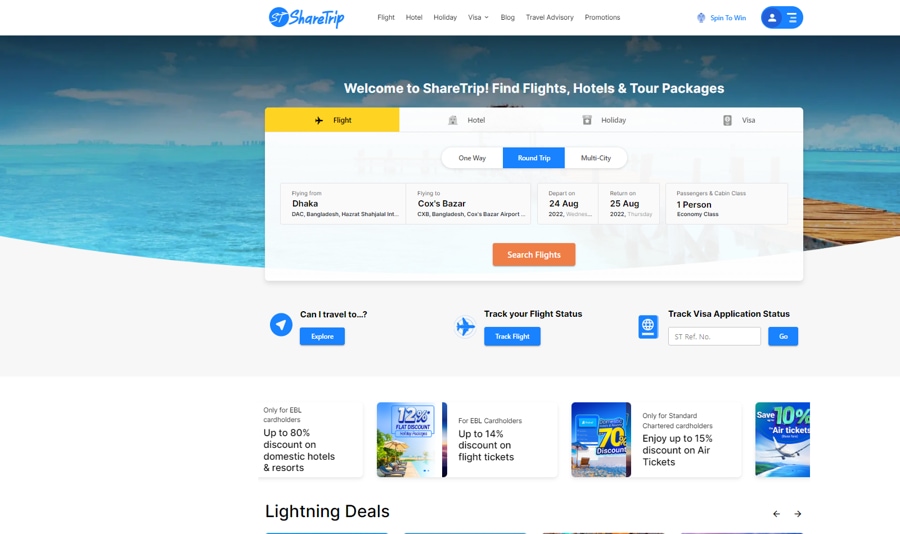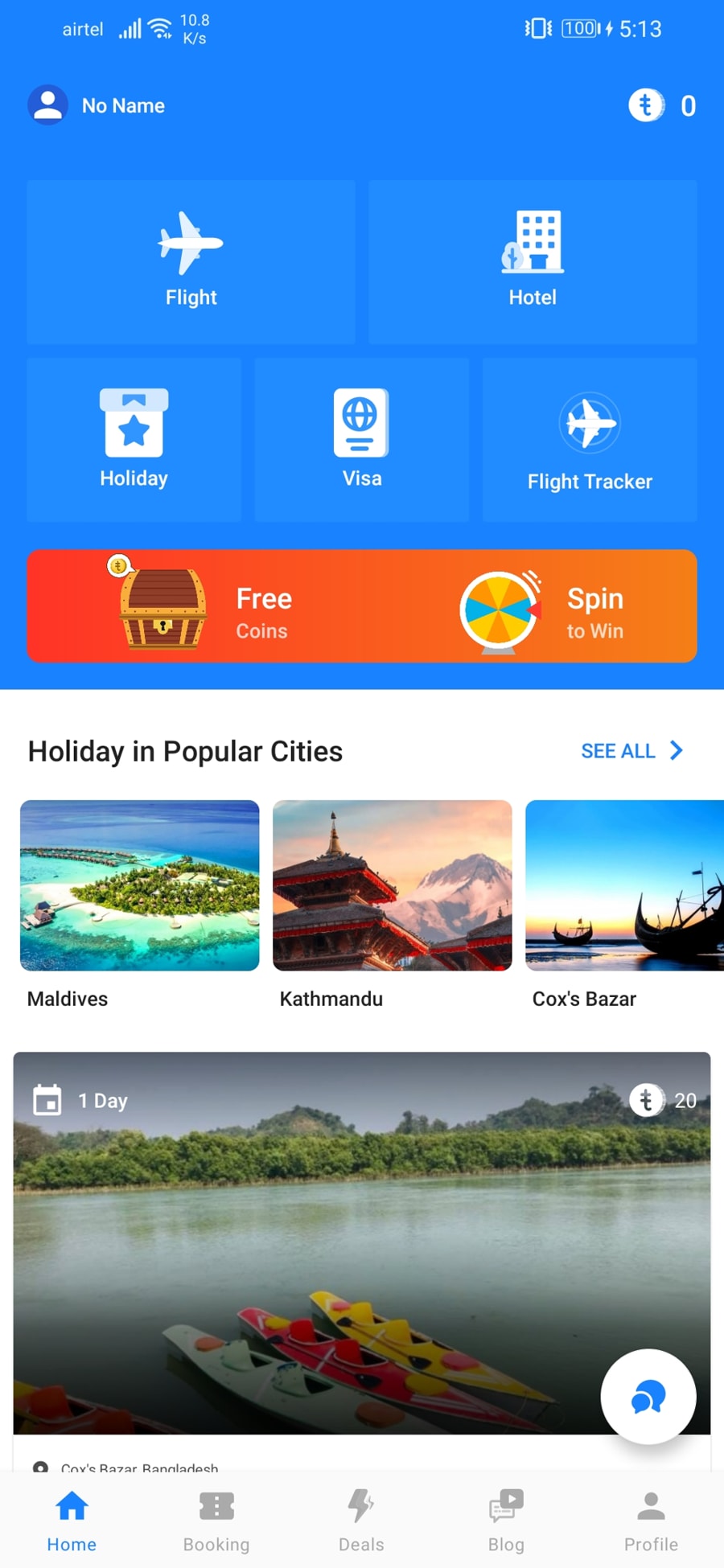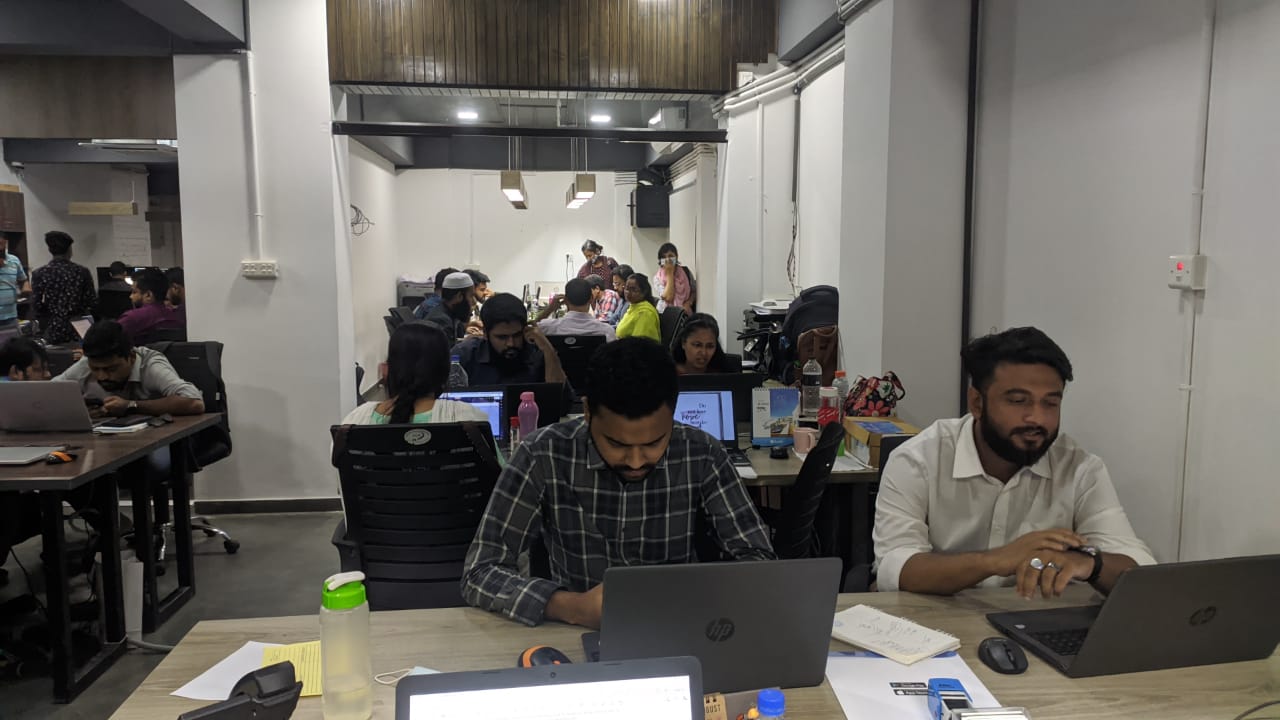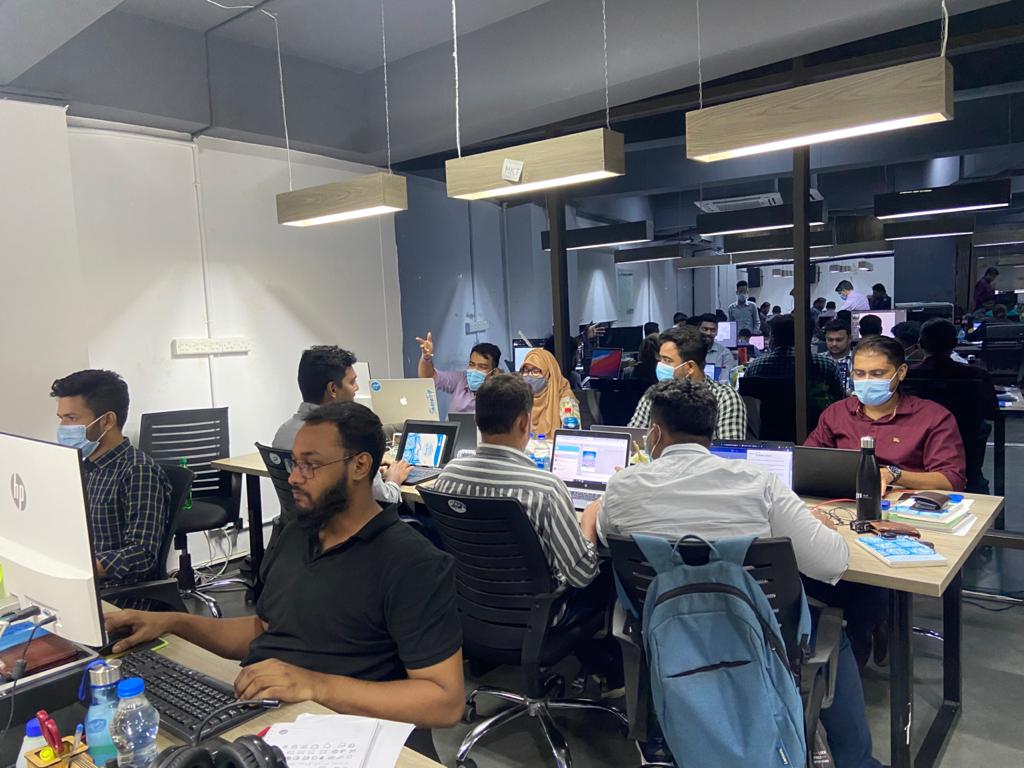
Travel has become a widespread cultural phenomenon in Bangladesh over the last decade. Go to any tourist destination in the country during a holiday, you’ll be surprised to see the level of social penetration of travel. This effect is particularly pronounced in major cities such as Dhaka during medium to lengthy holidays where residents desert their homes to go to distant places within the country and abroad.
Travel is a US$7 trillion industry globally. In Bangladesh, the size of the travel industry was reported at $5.3 billion in 2017, with local travelers contributing nearly 98 percent of the revenue. The industry is expected to grow by 6.8 percent annually to $7 billion by 2023. Several sources suggest some 350,000 Bangladeshis travel daily.
Bangladesh has gone through several socioeconomic transformations over the last few decades. The social structure has changed. Dual-income households have become the norm. Urbanization has accelerated. Industrialization and the rise of service sector jobs have expanded the time-starved and perpetually stressed out professional class. Traveling in near and far lands has become an escape for this growing class. The rapid growth of technology, mobile phones, and internet penetration has accelerated this transformation exposing people to trends and cultural phenomena from all across the world.
The dynamics of the travel industry have also been changing under the pressure of this rapid growth. Once a predominantly analog industry led by traditional travel agencies, the past few years have seen a rapid rise of online travel agencies (OTAs). A growing number of urban travelers today use online travel agencies for various travel services from booking flights to hotels to finding relevant information. This has further been aided by a willingness from investors, local and international, to back OTAs. The thesis is simple: online travel agencies can scale far better than offline travel agencies.
In a nutshell, OTAs in Bangladesh have a long way to go to surpass offline travel agencies, but the transformation, however, has begun.
ShareTrip is one of the several companies that are leading this transformation. It is one of the leading and most important companies in the vertical in Bangladesh. The company has experienced phenomenal growth, overcome significant challenges like the coronavirus pandemic unscathed, and has contributed to the overall growth of the OTA industry in the country.
ShareTrip turns three this year. In this article, we take a deeper look into the trajectory of the company, its evolution, strategic direction, and ambition going forward. We plan to do it in the following way:
ShareTrip came into being in July 2019 when Travel Booking Bangladesh, rebranded and relaunched its brand and service portfolio under the new name ShareTrip Limited. However, it was not a mere rebranding. Much more changed along with the name. TBBD was a predominantly offline travel agency with a decent yet insignificant online business. ShareTrip expanded that horizon and positioned itself as an OTA. It continued the offline travel agency business but focused shifted to the growing online business. The move has paid off. Today, ShareTrip is the dominant player in the vertical.
Over the last three years since the rebranding, ShareTrip has been on a relentless journey of innovation and service excellence. The company started with an android and iOS app along with a website. It has since introduced a long list of exciting features. For instance, Trip Coins — a kind of travel reward point and Spin to Win — a gamification feature to encourage user engagement. Users can earn Trip Coins by playing ‘Spin to Win' and booking services on the ShareTrip platforms that can later be redeemed to get savings on flights, hotels, holiday bookings, and more. ShareTrip was the first travel app to introduce reward-driven gamification in Bangladesh. The introduction of Flight Tracker was intriguing yet a much-needed feature in the travel industry. With the Flight Tracker, travelers can now track live flight schedules.

TBBD founders, the husband-wife duo Kashef Rahman and Sadia Haque, are real-life travel aficionados. Both were working at leading telecom operators in the country. They used to save up money throughout the year to travel around the world on holidays. Kashef used to make beautiful detailed itineraries for their travels. He quickly made a name for the skill, getting the attention of their friends and colleagues who would come to Kashef for various travel-related help. In line with this, TBBD started to work on a website to change the offline dynamics to online, although due to lack of financial and resource limitations, the dream started small. That was the inspiration for starting out with TBBD which later became ShareTrip.
TBBD was originally founded as a side project in 2014. But the business quickly gained traction prompting Kashef to leave his corporate job to give the company full time. They both hatched a strategy. Sadia would continue her job to ensure a relative sense of security in case TBBD wouldn't fly and Kashef would leave the job and try his best to make the company work. The bet worked.
And as they say, the rest is history.
In 2018, TBBD became a part of DataBird, a holding company with operations in multiple verticals. A year later, TBBD officially rebranded to ShareTrip and became an online-first travel services company.
Successful startups are usually an outcome of a unique insight that is not mainstream yet. If you look at ShareTrip's transition to online, it becomes apparent that the company saw the signs in the market ahead of many others. The transition was brought forward by several trends converging at the same time. In an interview with FS published at the time, ShareTrip CEO Sadia Haque explained the thought succinctly:
“We could see a sudden rise in interest in travel across society and a shift towards online. Traveling became a necessity rather than a luxury. Be it a 3-day holiday or a one-month holiday, people took traveling as something they identify with. Second, convenience became a critical factor in travel service delivery. With travel becoming part of their regular life, people wanted to have these services easily. Third, we could see an increasing online transition of services and businesses and growing convergence between the online and offline world. We could see the internet rapidly becoming the medium for everything. Since we are travel aficionados ourselves, we could sense this shift first-hand.”
The convergence of these trends created a new market condition that ShareTrip wanted to exploit. The company acted on the insight by turning itself into an OTA. In that same interview, Ms. Sadia explained the ambition of the new company:
“We started the transition with an ambition to attend the transformation of travel in the internet age. We wanted to be the pioneer in the sector in Bangladesh. We made two decisions: ShareTrip will serve all kinds of travelers and provide comprehensive travel solutions. We took stock of all travel services one might need and put together a strategy to offer that to our customers. We built our app and website with a goal to turn these platforms into complete travel solutions for our users.”
Afterward, the company paid increased attention to reaching out to more people. It launched exciting features. Launched campaigns across platforms. It studied the needs of its users and designed a communication strategy that looked beyond mere sales:
“Philosophically, we aim to be useful to our users in every platform and channel where we engage with them,” said Ms. Sadia. “We do this by giving them information and support to plan and execute their travels and tours well.”
Instead of taking shortcuts, the company put together a long-term strategy.
“We take a long-term view of things. The goal: it does not matter whether you use our platforms or not, we want you to consider us as the first choice when you think of travel. There are global platforms like booking.com and Agoda that you might consider. But we also want you to consider ShareTrip along with these platforms, if not before them.”
But consideration and sticking with a service are not the same thing. ShareTrip gets the difference. The company says it not only wants to acquire TOMA, but it also wants to stay there by offering superior service and experience. To address the challenge, the company has put together a three-pronged strategy: excellent product, people and culture, and partnerships.

Back in 2019, ShareTrip was predominantly a B2C company, focused on international travel. Coming from the offline world, it successfully established itself in the market as a front runner. Then COVID happened and all industries, including tourism, took a major hit.
While the company didn’t plan to explore B2B and the domestic travel market soon, the pandemic changed that calculation forcing its hands to rethink its strategies. For the next two years, it did some excellent work in the B2B segment and the domestic market.
The pandemic and the lockdown hit the offline travel agencies particularly hard. The company saw the market reality and a huge potential in the vertical. The lockdown started in March 2020. ShareTrip launched its full-fledged B2B platform in August of the same year. The product took off right out of the gate.
Between August 2020 and mid-2021, ShareTrip onboarded over 3500 offline travel agencies on its B2B platform. The timing was perfect and it was easy to convert offline agents to online. Today, ShareTrip says it has approximately 7000 agents on its B2B platform.
Launching the B2B business was a major success for ShareTrip. It complements ShareTrip’s B2C business and strengthens its demand aggregation power, allowing it to leverage the market power to get better inventory and pricing from suppliers.
Outbound travel was completely shut off during the pandemic lockdown. It was a difficult time for travel companies everywhere. ShareTrip didn’t have a domestic travel business before the pandemic. The company was working on some initiatives but did not have a full-fledged run. When outbound travel got nixed, it was a no-brainer for the company to get into domestic travel. The company built a hotel inventory management platform ST Rooms for domestic hotels and launched it in the second half of 2020.
Domestic hotels are not generally tech-savvy. Many of the inns and hotels don’t even have Facebook pages. After launching the ST Rooms, ShareTrip started onboarding hotels from 1-star to 5-star. It invested in extensive outreach, providing hotels training manuals, video tutorials, and other support. The initiative quickly gained the attention of users who started checking domestic hotels on the ShareTrip platform. The company says it has built the largest hotel inventories in Bangladesh even in comparison to the inventory of the Global OTAs.
ShareTrip has practically transformed its business model from B2C to B2C2B. The B2B business has generated additional sales and growth. The subsequent market power has allowed the company to get special rates, deals, and incentives from partners, allowing it to offer better rates and inventory to its customers.
ShareTrip has seen excellent growth over the years. The team has doubled. It has recruited senior professionals from the aviation and hotel management industries, taking the strength of its management team to a new level and elevating its standing in the industry.
Pandemic was difficult for every business. ShareTrip had its share of challenges. However, the company managed to overcome the challenges quite smoothly. It introduced new products and launched new verticals. When everyone was laying off people, it actively recruited throughout the pandemic and formed and expanded several teams.
ShareTrip can be defined by its relentless focus on transforming itself. Over the years, the company has launched several iterations of its platform and continues to work on the platform. Improving the user experience remains a priority, the company says.
A torrent of new features has been launched over the years. A new and user-friendly blog section. A real-time flight tracker. Integrated "Artificial Intelligence" through an intuitive ChatBot on ShareTrip's app and web. An automated visa service. The company has automated a large part of the booking and issuing of tickets that allows users to confirm their services instantly where applicable.
It has introduced several pandemic-specific features over the last two years. Travel has been in constant flux throughout the last few years due to the pandemic. Airlines change their policies every few weeks. Travel guidelines change all the time. There are a lot of uncertainties. ShareTrip introduced a dedicated information center for COVID-related travel restrictions and guidelines. It has partnered with several prominent healthcare service providers to provide COVID testing and treatment facilities, a designated service for ShareTrip customers.
The company has been doing meaningful work in medical tourism. It has brought in local and international suppliers to build out its medical tourism services from markets like Turkey, India, and Thailand to name a few.
The company has recently introduced NDC content in partnership with several airlines that can immensely benefit users. Many airlines are doing NDC content, where you can directly integrate Airline API on your platform. It allows the platform to get direct feeds from the airlines’ inventory, which means you can access the premium inventory and get better pricing. ShareTrip is the first platform in Bangladesh to have implemented NDC content for several major Legacy Airlines including Singapore airlines, Qatar airlines, Emirates, and multiple LCC airlines.
Over the last two years, ShareTrip has been paying a lot of attention to building associations. The company works with banks and many financial organizations. Runs joint campaigns. It has started working with lifestyle-based shops and outlets for distribution.
These changes have helped the company achieve phenomenal growth in GMV, customer retention, and engagement parameters over the last two years. The company says its retention has gone through the roof with over 80% combined B2C and B2B retention rates.

The pandemic has accelerated digitization in Bangladesh. An upside for online businesses. People have come to learn about the usage of digital services.
For ShareTrip, the pandemic has been a mixed bag. While its consumer business got affected like everyone else, it has managed to build a B2B business within a short time. It has launched several products that received excellent customer feedback. For B2B, the impact has been more constructive. The company has deepened its collaboration with the airlines.
Tech has transformed travel over the years. ShareTrip is a travel-tech company. But the company says it recognizes that regardless of tech advancement, travel is a human activity. Without human touch, your business will lose its competitiveness. The company says it will continue to prioritize the human aspects of its service.
ShareTrip started in 2019 with some 10-15 people. Today, ShareTrip has a team of over 165 people.
Entering the B2B market was a major milestone for the company. The company says it has seen a 3X year-on-year GMV growth, with more than 65% QoQ growth in the B2C segment alone post-pandemic.
The best thing ShareTrip has done over the years is that it has built an organization. Companies are about people and culture. Your company will go as far as your people and culture. ShareTrip has built a culture that empowers people and encourages ownership and a can-do mindset. Hence, a driven team continues to deliver excellent results.
“When we started to grow as a company at ShareTrip, we decided not to be a typical company,” explained Ms. Sadia. “We’ve aspired to build an organization. We have designed our systems and processes with that in mind. We’ve built an open, flexible culture where our people are sufficiently empowered to make decisions, learn, and grow.”
ShareTrip is structured in functional units and departments such as HR and Admin, Technical, Product, Customer Service, Marketing, Sales, Finance, and Accounts, etc. In some units, the company has multiple sub-teams such as B2B, B2E, and B2C sales teams. While all teams function independently, they collaborate as well.
When hiring, the company hires for cultural fit. “We look for character in people. We believe in teamwork and keeping people for the longer term”, said Ms. Sadia. “We want to create an environment to ensure people who join us and stay with us. We plan to reward people who stay long-term and make significant contributions to the company by making them equity partners of the company. That's the vision we have.”
The company maintains a hierarchy but the purpose of the hierarchy is to ensure discipline and to communicate the fact that there are growth opportunities for everyone. The company says it fosters a friendly collaborative environment. Team members treat the company as their home. While the senior management team comes with a lot of experience, most of its employees are young, creating an excellent blend of experience and youth.

In response to a question about the future plan for the company, Ms. Sadia said: “to continuously make a difference.” That may sound unspecific but it makes sense. The modern travel business is an ever-changing sector. Unless you innovate constantly, it is a difficult environment to survive.
ShareTrip plans to double down on research and development and consistently improve the existing products while introducing new products. The company works with a long list of suppliers — almost 1.2 million hotels and over 35 airlines. It has been focusing on LCC airlines for a while to grow its inventories. This move provides customers with more options to choose from. The company says it aims to move progressively, being compliant, and hence offers only those services and inventories that are open for the Bangladeshi Travel Space.
With the shift in the travel market, domestic travel has become a priority for the company. It has been working with domestic hotels and resorts and plans to add more services and features.
While the company expands its work in domestic tourism, it says it has plans to promote in-bound tourism in Bangladesh in collaboration with associations and stakeholders to grow the domestic tourism sector of Bangladesh.
The company has built a strong position across five key products: tickets, hotels, tours, packages, and visas. It is now eyeing getting into transportation. “The ambition is to make sure that our customers have an excellent experience in all these services when they are buying from us” explains Ms. Sadia 8n a recent conversation. “The focus is on ease and speed and building a one-stop platform for travel services.”
“ShareTrip is the largest OTA in the country and all data will vouch for that,” Ms. Sadia claims. “Our main goal for the coming year is to maintain our leadership position, build strong differentiation so that people choose us over other service providers. We have consistently launched unique features and we want to continue that. Today, static competitive moats no longer work. You have to constantly create competitive moats. That is where we want to position ourselves.”
While innovating consistently, the company also wants to build a lasting company.
Ms. Sadia says: “we are building for the long term. For us being in this trade is not a sprint but a marathon. In the startup world, you see a lot of short-lived success. We think differently. We are here for the long run. We don't want to be a company that will fizzle out six months later. We are building an organization that will live a long time creating a strong footprint in the country and making a significant presence in the Global Arena.”
